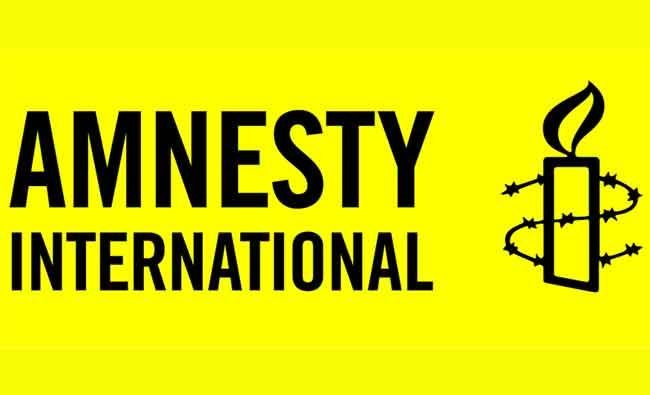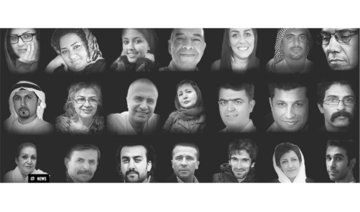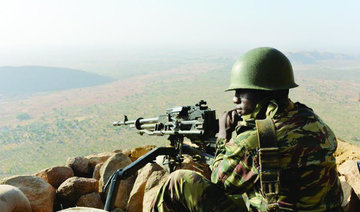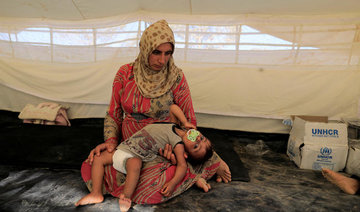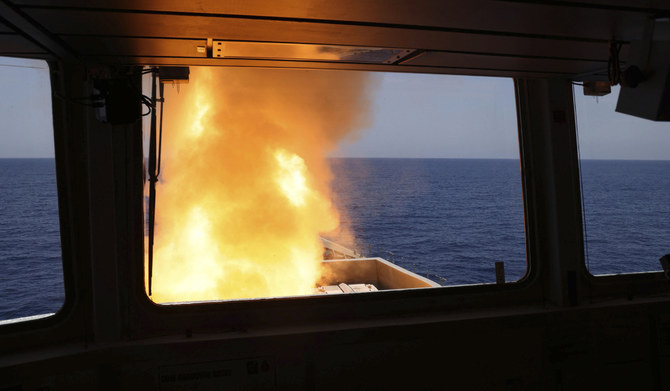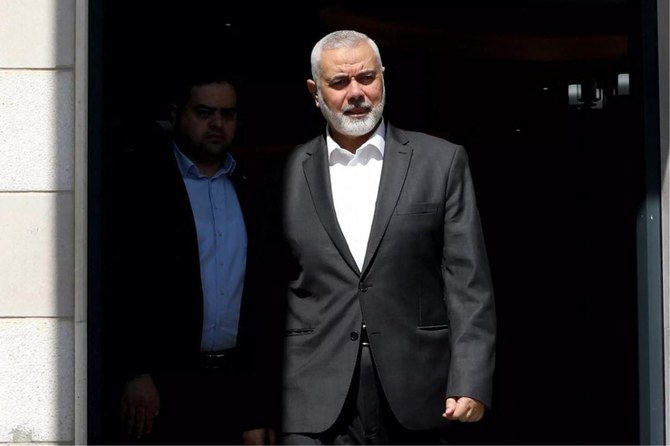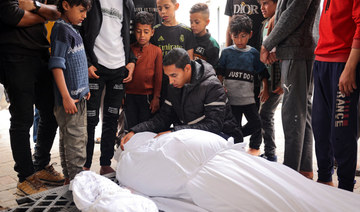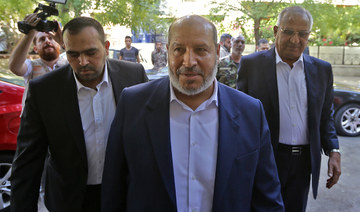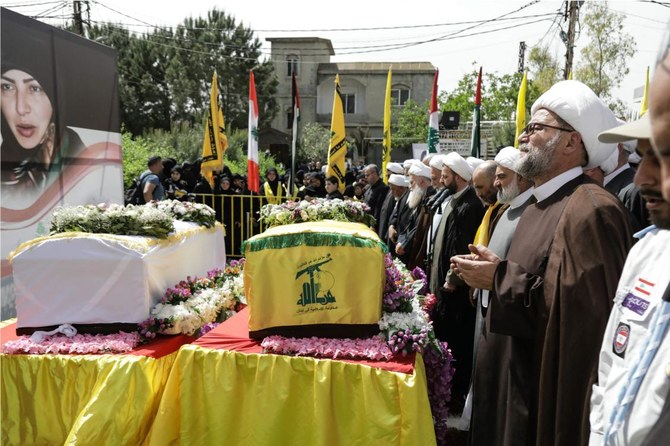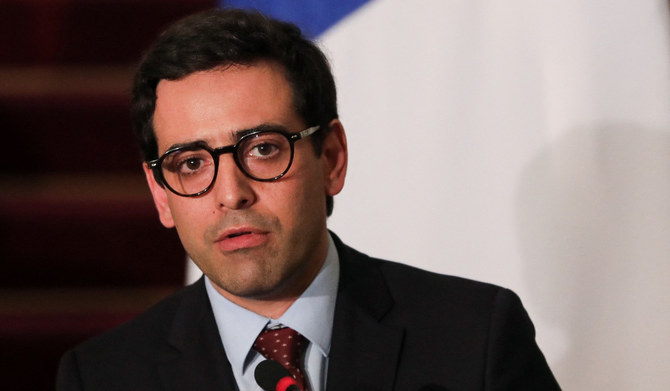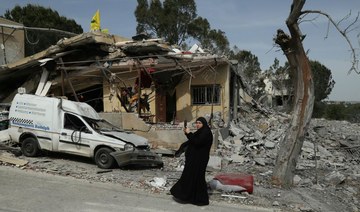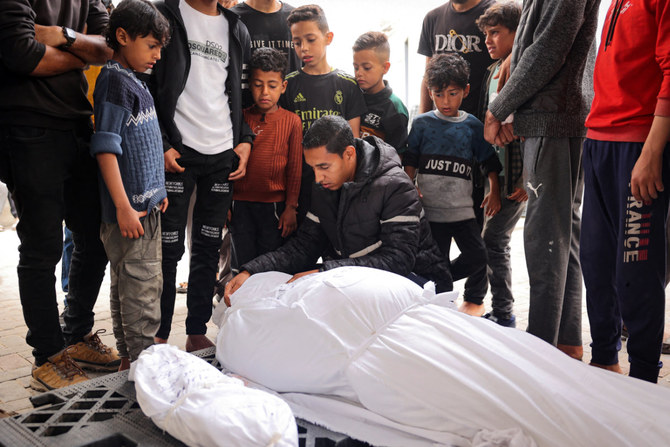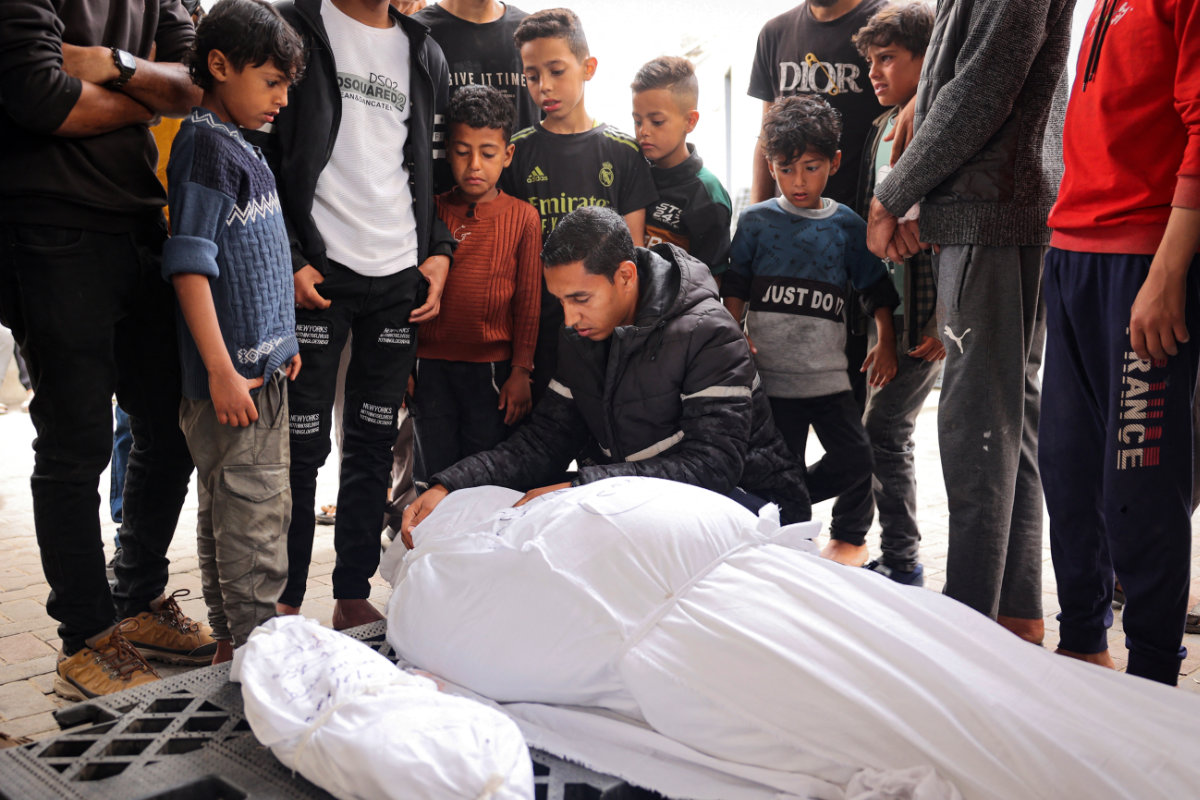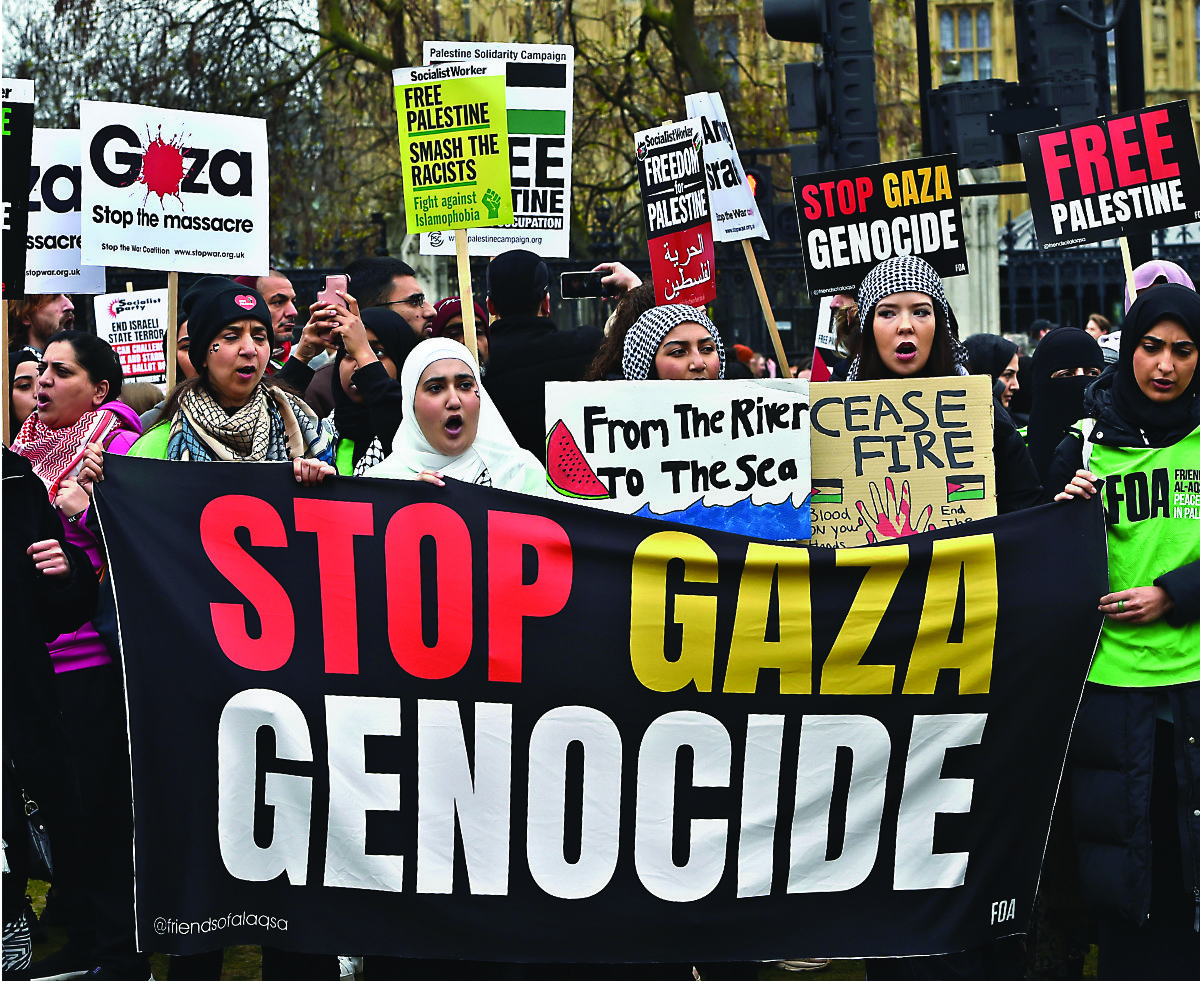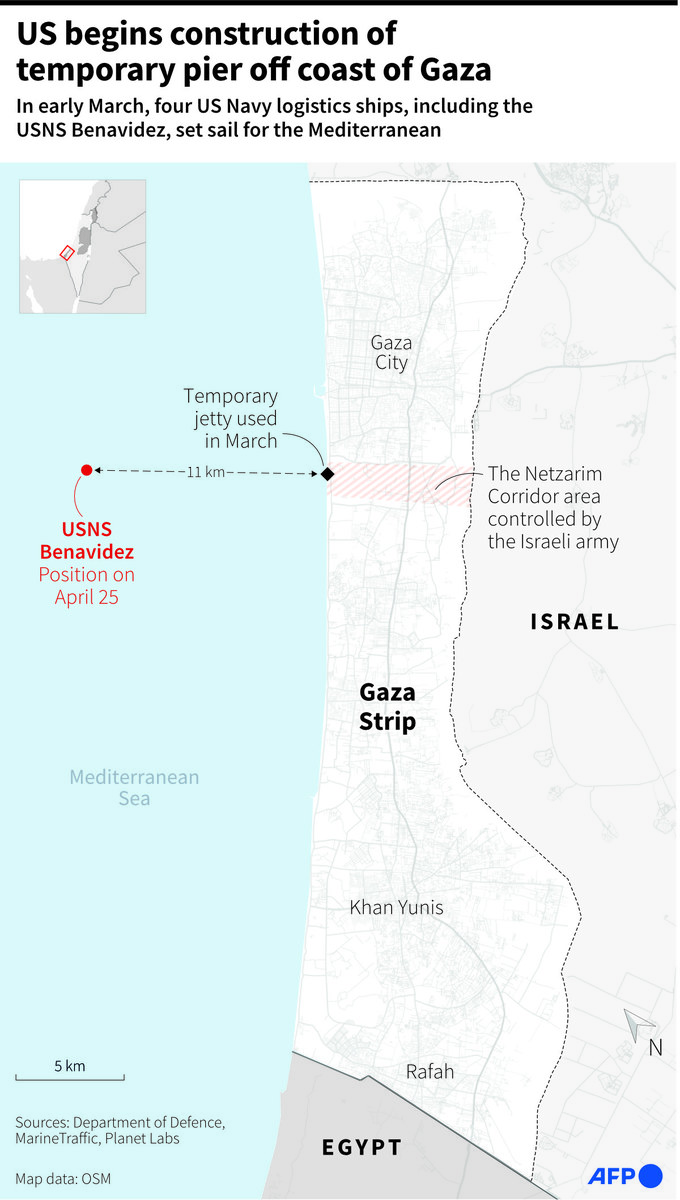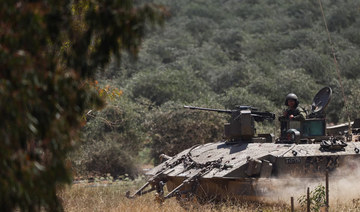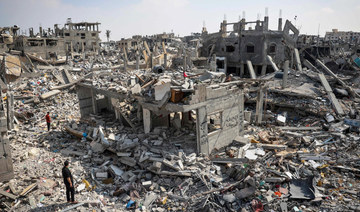BEIRUT: Amnesty International said on Thursday a US-led coalition campaign to oust Islamic State from Syria’s Raqqa had killed hundreds of civilians, and those remaining face greater risk as the fight intensifies in its final stages.
The rights group also said Russia-backed Syrian government forces had carried out indiscriminate attacks against civilians, reported to have included cluster and barrel bombs, in a separate campaign against the militants south of Raqqa city.
“Civilians are ... trapped in the city, under fire from all sides,” Amnesty said in a report.
It said the U.S-backed Syrian Democratic Forces (SDF), which includes Arab and Kurdish militias, must take more care as they battle for the city’s central districts.
“It is imperative that all the parties to the conflict take all feasible precautions to minimize harm to civilians, including ending the use of explosive weapons with wide area effects in populated civilian areas, in compliance with the prohibition on indiscriminate or disproportionate attacks.”
Islamic State (IS), which took over Raqqa and its environs in 2014, uses civilians inside the northern Syrian city as human shields and targets those trying to escape with snipers and mines, Amnesty said.
“IS wouldn’t let us leave. We had no food, no electricity,” a former Raqqa resident told Amnesty, one of 98 displaced individuals it spoke to in northern Syria.
COUNTING THE DEAD
It is difficult to establish how many people have died in the battle for Raqqa.
People interviewed by Reuters displaced by the fighting said air and artillery strikes have killed civilians, and Reuters reporters have seen massive material damage to buildings and infrastructure as they visit recaptured areas.
The Britain-based Syrian Observatory for Human Rights, which monitors Syria’s war through a network of on-the-ground contacts, said between June 5 and Wednesday it had documented the deaths of 789 civilians, 200 of them children, in Raqqa city as a result of bombardment by the US-led coalition and SDF.
Monitoring group Airwars told Reuters they believe between 725 and 993 civilians have likely been killed from coalition actions in Raqqa city since the offensive began in early June.
Hundreds more civilians have reportedly died after being fired on by Islamic State or being caught in their minefields, Airwars Director Chris Woods said.
“Coalition forces have listed 16 reports of alleged casualties in or near Raqqa between 6 and 30 June, dismissing three as ‘non-credible’, while 13 others are pending assessment,” Amnesty said.
It called on the coalition to establish a more transparent and independent reporting procedure.
The coalition says it is very careful to avoid civilian casualties in its bombing runs against Islamic State in both Syria and Iraq, and investigates any allegations.
The coalition was unable to provide more recent statistics when contacted by Reuters.
NOWHERE TO RUN
Amnesty criticized the US-led campaign for artillery and air strikes on areas containing civilians and asked for an end to attacks that risk being indiscriminate.
“Whether you live or die depends on luck because you don’t know where the next shell will strike, so you don’t know where to run,” former Raqqa resident Mohammed told Amnesty.
Syrian government forces, backed by the Russian air force and Iran-backed militias, have also been advancing against IS south of the River Euphrates that forms Raqqa city’s southern edge.
Amnesty said residents had told it that air strikes had hit camps where people had fled the fighting.
Amnesty said the testimonials they collected suggested cluster bombs had been used in some of the attacks.
Russia and Syria say they only target militants.
Neither Russia, Syria nor the United States are signatories to the Convention on Cluster Munitions, but international humanitarian law prohibits indiscriminate attacks against civilians.
Amnesty urged the international community to urgently increase aid for fleeing civilians.
INTENSIFYING BATTLE
There has been a recent increase in the number of coalition air strikes on Raqqa.
Lt. Gen. Steve Townsend, the coalition’s commanding general, said Raqqa was now the coalition’s priority following the recapture of Iraq’s Mosul from IS last month.
“The fight has now entered into the very hardest parts of the city. And so our partners are needing greater assistance,” Townsend told reporters in Baghdad on Wednesday.
Townsend said it was logical to assume there had been “some increase” in civilian casualties as a result of increased strikes, but that he had seen no hard evidence that casualties had increased significantly.
The United Nations says at least 200,000 people have fled Raqqa in recent months, and that up to 20,000 civilians remain trapped inside.
Islamic State is on the back foot in both Syria and Iraq. The US-backed SDF have captured swathes of its territory in northern Syria and Russia-backed Syrian government forces are making rapid advances in the central desert area.


